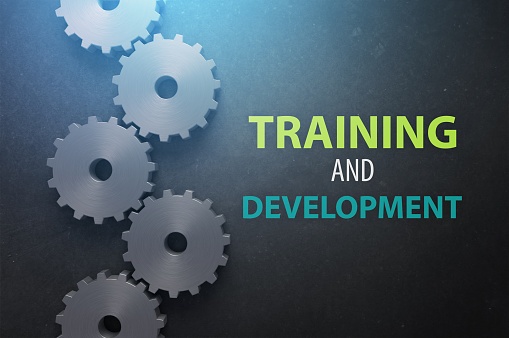Do you see issues in your team’s performance and think that management training could be the solution? Recognizing that you need a new training program isn’t enough. For a commitment-based training program to achieve maximum effectiveness, it must speak to the typical problems your employees face and the management skills they currently lack.
Read MoreVital Insight Into Management Training Success
Expert Tips For Building A Strong Leadership Development Strategy
One of the biggest responsibilities owned by a manager is the professional development of their employees. Look back at how your team operated a year ago, and compare it to now. Are they working more efficiently and making regular progress?
If not, your performance training and reviewsmay be a contributing factor. Providing performance feedback is a critical skill that managers must possess. By making your feedback constructive, you’re able to coach improved employee performance.
Whether you’re conducting employee performance reviews on a monthly, quarterly or annual basis, take note of the following tactics and apply them to your process.
Read MoreHave you fallen into the trap of compliance-based training and failed to promote a commitment-based approach? Many companies check off training boxes to simply stay compliant. But, if you want to make real improvements to how your company operates, you need to cultivate a workforce that’s committed to learning. Are management training and self-improvement part of your regular routine?
Read MoreWhat are you currently doing to improve workplace productivity? This is a common goal for most companies, yet many don’t know how to attain it. You may be able to identify inefficiencies in daily operations, but perhaps you’re not sure what to do about them or how to prevent future challenges.
If you don’t know how to address these issues or where to start, look to management training first, as this is an effective way to boost workplace productivity.
Read MoreSetting professional development goals for your team is an effective way to motivate performance. While there are a number of goals that impact the way your leaders manage their employees, it’s imperative to look at how your teams are operating, too.
Whether you’re developing quarterly objectives for your team or setting broad goals for your company, take time to think about what goals you want to establish and how to do so properly.
Read MoreWhen companies are on the hunt for management training courses for their employees, they tend to consider factors like price and choice of material. Often, they fail to put the appropriate thought into the selection of a delivery method.
The fact is every company is different, so various types of delivery methodsare right for various types of workforces. If one of your goals is to improve the effectiveness of your management training program, you must take how your employees learn best into consideration – and that means examining the program’s delivery method. Start by identifying possible flaws that exist in how your employees are currently learning.
Read MoreHow does your company view management training? Are you using it as a compelling professional development tool, or are you just checking off training boxes to remain compliant?
Many companies are just scraping by, completing the bare minimum when it comes to training – and nothing more. But, the most successful management programs are ones that companies are dedicated to over the long term. It’s about more than compliance. It’s about commitment.
The right investment in management training goes beyond purchasing a course and providing it to your employees. You need to integrate training and self-improvement into your company culture.
Read MoreImagine your ideal salesperson: They always close deals. They’re optimistic in the face of challenges. Your customers love interacting with them.
Finding a team of ideal salespeople could greatly impact your company’s success. So, before you begin the hiring process, keep that ideal salesperson in mind. It’s important to determine the characteristics that make a candidate a compelling salesperson.
When you come to each interview already knowing what you’re looking for, hiring winning talent is an easier endeavor. And, sure, there may not actually be the perfect salesperson, but there are a few essential sales skills that all ideal hires possess.
Let’s uncover which characteristics you should look for in order to hire winning talent for your sales team.
Read MoreEvery business’s main goal is profitability. So, when you hear professionaldevelopment programbenefitslike “team morale” and “employee loyalty,” you might write them off as “nice-to-haves” that aren’t really essential to your company’s bottom line.
But, you’d be wrong.
The right professionaldevelopment program returns much more than an intangible ideal: It reaps real monetary advantages for your organization.
One of the key components of being an effective sales representative – one who creates business and generates revenue for your company – is mastering the incoming sales call. After all, the sales call sets the tone for your company’s entire relationship with a customer.
So, do your people have this skill, or are they in serious need of sales performance training?
In evaluating your current sales team, you may find that some team members are comfortable on the phone and connect with customers easily, while others are stumbling through sales calls and having difficulty closing deals. Regardless, even the most experienced sales representatives make mistakes that could cost your company a new account.
Review the following list of sales call “don’ts” to help your team avoid these major blunders and master the incoming sales call.
Read More











